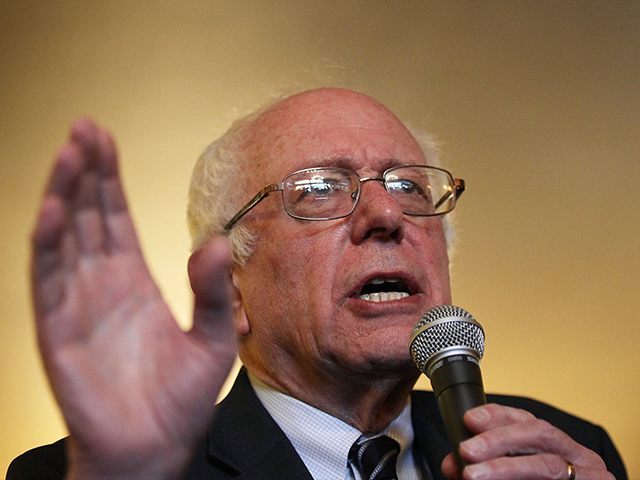“Democratic” socialist Sen Bernie Sanders (I-VT) could well be the next President of the United States.
It does not matter any longer whether his rival, former Secretary of State Hillary Clinton, is indicted (though she ought to be, and President Barack Obama may soon find it useful to rid his party of any obstacles to his long-term control rather than protecting the Clintons).
Once thought too radical to be a serious candidate, Sanders is now one of the few left.
It is becoming apparent that Donald Trump is, ironically, the most electable of the Republican candidates–at least when Clinton is the presumptive opponent.
The reason the GOP establishment is gravitating towards him is not that it likes him, but rather that it sees him as a winner. Corporate America is also starting to see Trump as the favorite. On Wednesday, David Cush, CEO of California-based Virgin America, openly predicted Trump would beat Hillary.
None of the other Republicans has yet proven to have the tactical instincts, the chutzpah, or the sheer determination to win that Trump has shown.
On Thursday he did the unthinkable, and followed through on a threat to skip the last debate before the Iowa caucuses–a risky gamble that paid off when his closest rival, Sen. Ted Cruz (R-TX), had to spend two hours fending off attacks from also-rans. And by bringing up the Clinton scandals no other Republican would touch, Trump has neutralized Bill Clinton as a factor. He is as responsible as anyone for the Sanders surge.
Yet Trump’s aggressive tactics would fail against Sanders–just as they are failing for Hillary Clinton, who is about to lose both in Iowa and New Hampshire.
Sanders is a clumsy politician. He nearly conceded the race when he foolishly gave Clinton a pass on her email scandal.
And yet his guileless approach is the key to his appeal. He is authentically radical, unlike Clinton–or Obama. His quaint, naïve radicalism invites empathy rather than contempt.
Sanders is also taking advantage of the fact that Americans no longer know what socialism is, a generation after the end of the Cold War. Few remember what F.A. Hayek explained in the last century–that “democratic” socialism is an oxymoron, because the state cannot micromanage our economic affairs without ending freedom as we know it.
Young Americans are particularly ignorant about socialism–not only because they have no personal memories of it, but because they have been educated to see it as a noble idea that failed because of political mistakes and outside pressure.
A new study of college syllabi shows that Karl Marx’s “The Communist Manifesto” is one of the top three texts assigned to American college students, and that Marx is the most assigned author in U.S. economics classes.
So Bernie Sanders can tell the CNN audience at this week’s Democratic town hall that “democratic socialism” is the “right to economic security,” without talking about confiscatory taxes; that “democratic socialism” is what they have in Europe, while ignoring Europe’s ongoing fiscal crisis; that “democratic socialism” just means “creating a government that works for all of us, not just a handful of people on the top,” as a room full of grownups applauds.
They trust Sanders, because he was right about the Iraq War. They forget that he was wrong about the Cold War. But would that really matter to them today? They voted for Obama, hoping–knowing–he believed much the same.
The good news is that Trump and Sanders are both taking this election where it needs to go–to the urgent concerns of middle America. The bad news is that Sanders may be immune to Trump’s attacks.
Hail to the Chief, Comrades!

COMMENTS
Please let us know if you're having issues with commenting.